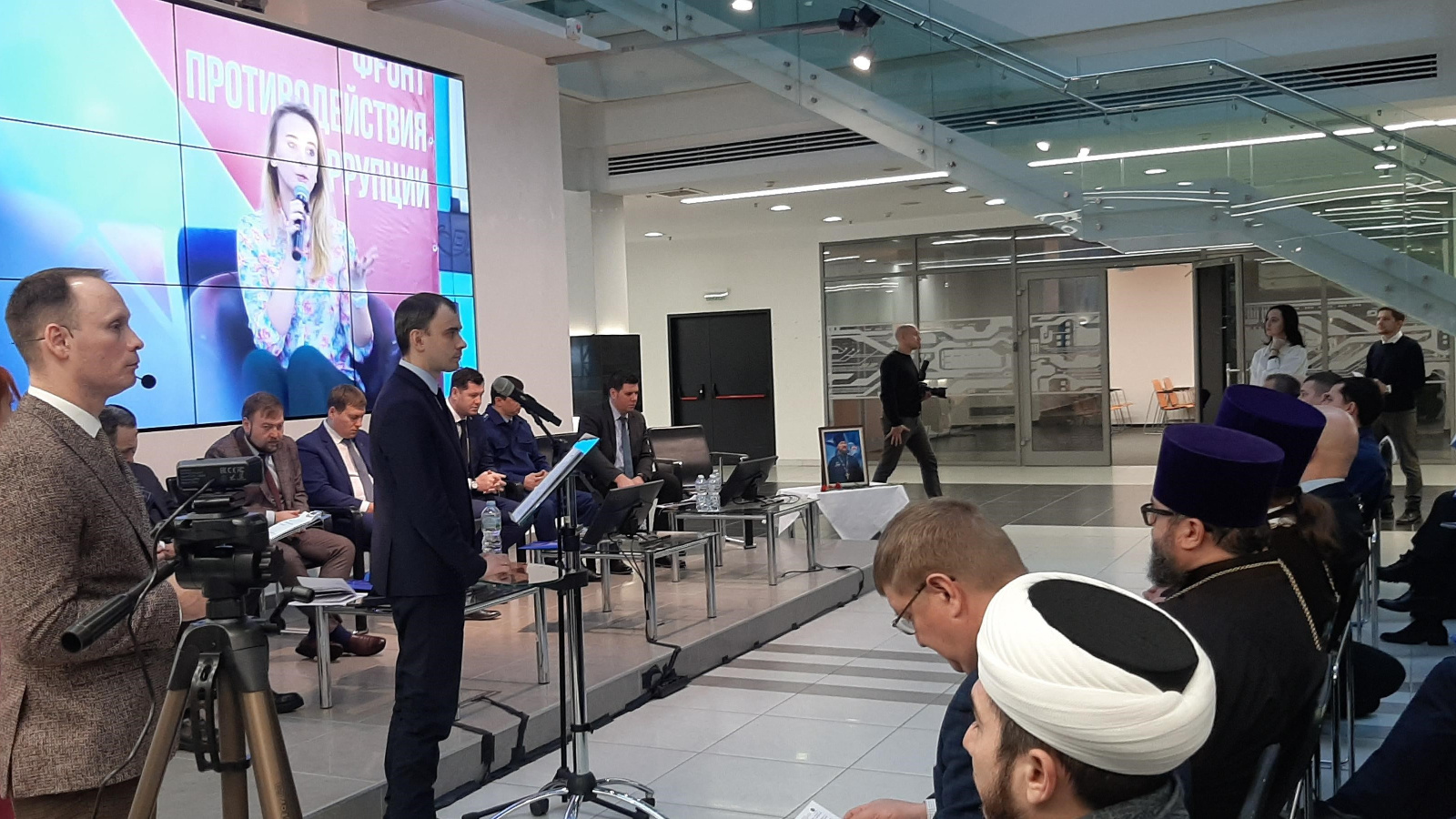Representatives of the Ministry of Construction of the Republic of Tatarstan took part in the VII Council of Public Organizations and Associations of the Republic of Tatarstan on combating corruption

On November 23, 2023, the Kazan IT Park hosted a meeting of the VII Council of Public Organizations and Associations of the Republic of Tatarstan on Combating Corruption, within the framework of which an international scientific and practical conference «Problems and solutions in the field of combating corruption at the present stage of the agro-industrial complex» was held.
The Council was organized by the Tatar Institute of Retraining of Agribusiness Personnel, the Office of the Raisa of the Republic of Tatarstan on Anti-Corruption Policy, the Ministry of Agriculture and Food of the Republic of Tatarstan, the Public Chamber of the Republic of Tatarstan, the Union of Public Figures of the Republic of Tatarstan and other public organizations.
The conference was attended by representatives of the Federal Assembly of the Russian Federation, the Supreme Court of the Republic of Tatarstan, the Prosecutor's Office of the Republic of Tatarstan, the Public Chamber of the Republic of Tatarstan, the Union of Public Figures of the Republic of Tatarstan, the TRO "Association of Lawyers of Russia", the Chamber of Commerce and Industry of the Republic of Tatarstan, the National Committee of Public Control, the Academy of National Security, ministries, departments, local governments and public organizations of the Republic of Tatarstan, representatives of religious denominations.
Nikolay Titov, Honored Worker of Agriculture of the Republic of Tatarstan, Rector of the Tatar Institute of Retraining of Agribusiness Personnel, opened the meeting of the Council, who during his address recalled that the First Council of Public Organizations and Associations of the Republic of Tatarstan on Combating Corruption was held on November 23, 2017 and is held annually, becoming a permanent discussion platform.
Alexander Lokhotskoy, the Chief Adviser of the Office of the Raisa of the Republic of Tatarstan on Anti-corruption audit, made a welcoming speech, who focused the attention of those present on topical issues of the implementation of anti-corruption policy in the Republic of Tatarstan and gave examples from the practice of anti-corruption work, including from the activities of the Republican Expert Group on Anti-Corruption.
Having discussed with the participation of the expert community topical issues of the implementation of the unified state anti-corruption policy, the participants recommended to continue work on the implementation of educational activities among students and youth to identify the causes and consequences of corruption in various spheres of society; the formation of students and youth intolerant attitude to corrupt behavior, standards of anti-corruption behavior, necessary competencies in the field of anti-corruption; development of prospects for the organization of youth public control in the field of anti-corruption; improvement of the work of anti-corruption student commissions. During the discussions, it was noted that the implementation of these recommendations will allow the younger generation to form an aversion to corruption as a phenomenon that is absolutely incompatible with the values of the rule of law, creating conditions for the education of honesty, decency, integrity, understanding of their own duties and duty as the foundations of the anti-corruption worldview of a citizen.